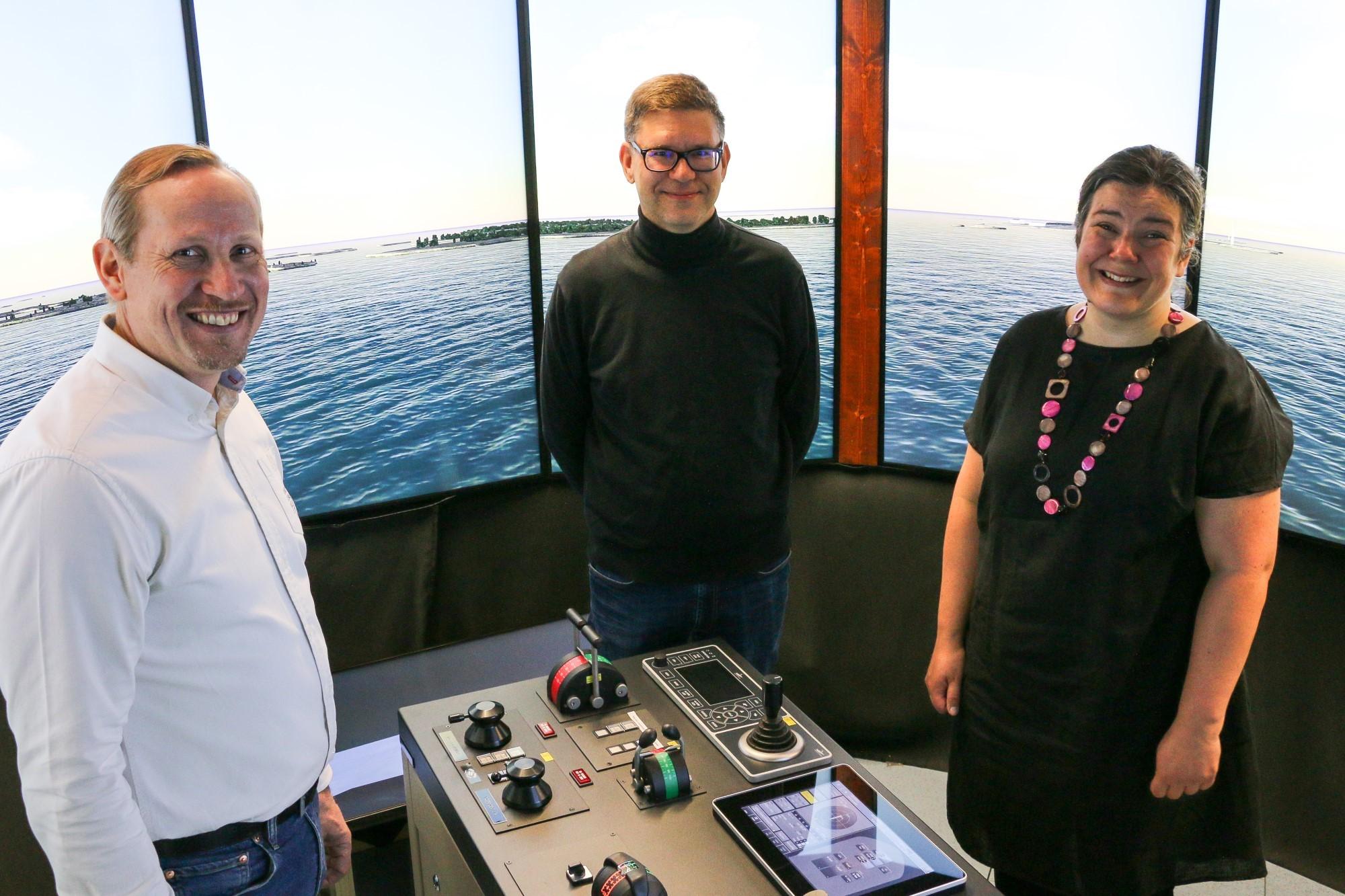Smart technology solutions for global problems of navigation are being developed in the Turku region. The key to success lies in strong co-operation.

How can seafaring, waterways and port operations be made environmentally sounder, safer and more efficient using smart technology solutions and shared data?
These questions are studied in a number of companies and research projects in the Turku region.
”An interesting and complex ecosystem of smart shipping has emerged in the Turku Business Region area”, Vesa Erkkilä, Network Manager of Turku Science Park Ltd sums up.
One of the underlying factors is the British company Rolls-Royce which invested a great deal in autonomous navigation while operating in Turku. The SVAN project was a major milestone: in 2018, Finferries car ferry sailed a completely autonomous sea voyage for the first time in the world using technology developed by Rolls-Royce.
That same year the company sold its Commercial Marine unit to the Norwegian company Kongsberg which now operates its Finnish business under the name Kongsberg Maritime Finland. The reorganisation also sowed the seeds of many new Turku-based firms focusing on smart shipping.
Know-how base for high-tech companies
A strong know-how base is a key reason why former Rolls-Royce employees and current high-tech entrepreneurs Karno Tenovuo and Juha Rokka want to work in Turku.
Mr Tenovuo manages Awake.AI which focuses on smart port logistics. Groke Technologies, headed up by Mr Rokka, specialises in smart navigation systems. They think that both Rolls-Royce and Nokia have played a big role in why there is a lot of high-tech expertise in Southwest Finland.
”We have people with a long experience in communications technologies and ship autonomy. Now we are utilising this expertise in a new area that is linked to ports and logistics”, Mr Tenovuo sums up.
”It’s great to see that many good things have emerged from Rolls-Royce, and that the know-how is successfully maintained and increased. We also have many employees who are new to the maritime industry”, Mr Rokka says.
Although Groke Technologies and Awake.AI operate on global markets, the location of the companies matters. Mr Tenovuo says that open data is one of Finland’s competitive advantages.
”Finland and the Baltic Sea region provide the best data sources in logistics. Here we have a good setting for developing our business operations.”
According to Mr Rokka, maritime technology companies thrive in the region with strong and recognised maritime industry and stakeholders with whom it is easy to co-operate. Business Finland is also an important partner to both companies.
”In order to attract international investments to Finland, state support is also needed. The co-operation is straightforward, and there is not too much bureaucracy involved”, Mr Rokka says.
Universities participate in the development
The universities in Turku also contribute to the ecosystem of smart shipping in the region. Expertise with different points of view can be found in Novia University of Applied Sciences, Turku University of Applied Sciences, Åbo Akademi University, and the University of Turku.
According to Research Co-ordinator Jarkko Paavola, the digitalisation expertise of the Turku University of Applied Sciences has in recent years been developed for the needs of the maritime industry in particular. The equipment of the SVAN project is also available in the laboratory of Turku UAS.
”Rolls-Royce invested a great deal in the project at the time, and we have had access to that infrastructure from Kongsberg for using it in research.”
According to Mr Paavola, the smart shipping research projects involve many research groups and local companies. The total budget of the projects for 2020–2023 is around three million euros.
There is a lot going on in Novia University of Applied Sciences, too. Last year, Novia founded a research unit (FIPS2@Novia) focusing on the theme together with the German Fraunhofer CML.
According to Research Director Mirva Salokorpi, the unit combines Fraunhofer CML’s technological know-how with Novia’s experience in navigation. The unit focuses on applied research.
”We study, develop and test new technological products and solutions nimbly and directly for the needs of companies”, she sums up.
Success through co-operation
The Turku region believes in co-operation. According to Mirva Salokorpi from Novia, the local companies and universities can together develop ambitious smart solutions for many different needs, whether they are linked to smart operating of ships, remote operating of ships, autonomous systems or smart ports.
”And we can quickly gather many different actors at the same table from companies, universities and the authorities”, says Mr Erkkilä from Turku Science Park Ltd.
”It creates prerequisites for a good operating environment when different parties support each other. It is important to us that the maritime industry is also understood outside the business world”, says Mr Rokka from Groke Technologies.
Niko Kyynäräinen, Director of Business and Economic Development at City of Turku, thinks that it is great that the huge potential of the region in smart shipping is also recognised nationally. As an example he mentions Business Finland’s funding which aims at strengthening the local co-operation networks.
This spring Meyer Turku was selected a leading company to develop carbon neutral technological solutions for cruise liners together with its co-operation network. In 2019, Awake.AI was selected a growth engine to build a partner network valued at billions of euros in its own field.
”And for the local companies to be able to develop and grow in global markets, we need experts. The City will take every effort for the successful building of a know-how foundation and attracting of experts”, Mr Kyynäräinen says.
Photo and text: Heidi Pelander

